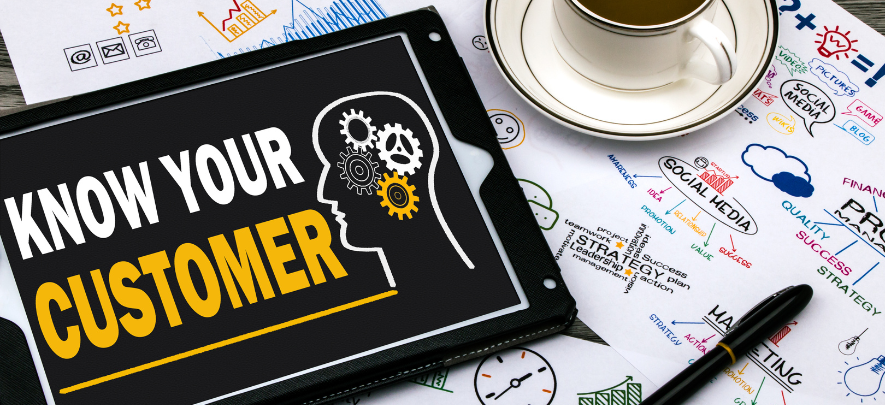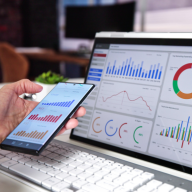Know Your Customer(s)...Really Well!

Business Development
62 week ago — 5 min read
Most MIS reports can inform you very well on who your top and bottom customers by revenue or profit are, which is simply reactive good to know information. What if you could learn more about "who exactly” are your profitable and unprofitable customers, that is, define the market for yourself so that you can hunt the good ones down quickly to add to your business.
This is where data analytics steps in! Using data analytics, one can segment their existing customer base, gather external inputs from various platforms, broad trends and truly define your own customer base for focused sales and marketing effort and optimize ROI impacting your top and bottom line.
What is Customer Segmentation Analysis?
Customer segmentation analysis is like breaking down your big, mixed crowd of customers into smaller, more manageable groups based on certain characteristics. Think of it as sorting a basket of mixed fruits into apples, oranges, and bananas. Each group (or segment) has something in common, making it easier for you to understand and serve them better.
Using data analytics, one can segment their existing customer base, gather external inputs from various platforms, broad trends and truly define your own customer base for focused sales & marketing effort.
Why is it Important?
By knowing your customers really well, you can:
-
Personalize Marketing: Tailor your marketing messages to suit different segments. For example, a discount on kids' clothing might appeal more to young parents than to college students.
-
Improve Customer Service: Understand the unique needs of each segment and cater to them. High-value customers might appreciate a dedicated support line, while occasional buyers are optimally served with self-service options.
-
Boost Sales: Identify untapped opportunities. For instance, if mid-sized companies in your customer base are spending more recently, they might be prime candidates for upselling new products.
How Does It Work?
-
Collect Data: Gather information about your customers. This could be demographic data (age, location), behavioral data (purchase history, website visits), or even psychographic and / or firmographic data.
-
Analyze Data: Use machine learning techniques to find patterns and similarities among your customers. This step involves sorting and grouping them based on the collected data.
-
Create Segments: Define your customer segments. For example, you might end up with groups like "frequent buyers," "discount seekers," or "luxury spenders."
-
Apply Insights: Use these segments to refine your marketing strategies, customer service approaches, brand positioning and more.
Here is an example to make it real!
Imagine you own an online bookstore. By segmenting your customers, you discover that a significant group of them are parents who frequently buy children's books. Another segment consists of young professionals who prefer e-books. With this knowledge, you can create targeted promotions, like a summer reading campaign for kids or a discount on e-books for busy professionals.
In conclusion, customer segmentation analysis helps you move beyond generic MIS reports. It provides a deeper understanding of your customers, enabling you to personalize your approach, enhance their experience, and ultimately, grow your business. In fact, when you are targeted with special offers, personalized credit cards, travel reward points, its because you were segmented! You were put into a category by the companies (not all, some!) and they then tailored the product to your taste to increase the probability of purchase.
If it works for the large cap companies, why aren't you also taking advantage of it? Take the time to know your customers…realy well – it's a game-changer!
Also read: 3 Easy Solutions to Plug Your Leaking Sales Funnel
To explore business opportunities, link with me by clicking on the 'Connect' button on my eBiz Card.
Image source: Canva
Disclaimer: The views and opinions expressed in this article are those of the author and do not necessarily reflect the views, official policy or position of GlobalLinker.
Posted by
Mala PaliwalIn my role, I oversee the business development, account management and delivery, and deliver negotiation services for family businesses. I have over 21 years of experience with...
View Mala 's profile
Other articles written by Mala Paliwal
Data Analytics vs. Management Reporting (MIS)
55 week ago
Mine Your Sales to Find a Diamond in the Rough
57 week ago
Drop That Anchor and Don’t Fall For One!
57 week ago
Most read this week
Trending
Get Efficient at Taking Decisions
Lãnh đạo & Quản lý 25 week ago
The Art & Science of People Pleasing in Retail
Bán lẻ 27 week ago
Khởi nghiệp 28 week ago















Comments
Share this content
Please login or Register to join the discussion